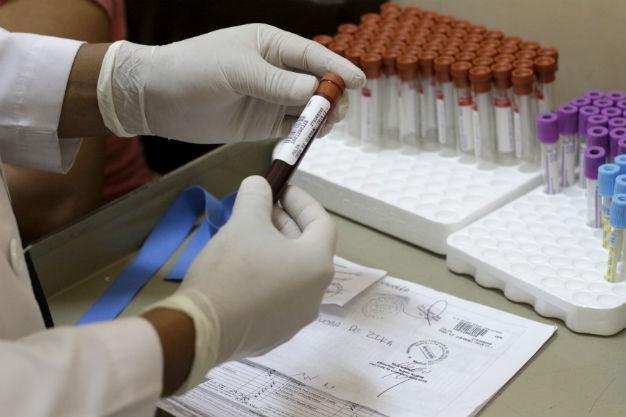WHO calls for special meeting over Zika virus
GENEVA

REUTERS photo
The World Health Organization (WHO) readies to meet at a special meeting on Feb. 1 to decide if they should declare an international health emergency for the Zika virus, which is “spreading explosively” in the Americas and could see up to 4 million cases over the next year, international health officials said Jan. 28.The warning from the WHO came amid a call to arms by officials on both sides of the Atlantic over the mosquito-borne virus, which has been linked to a spike in a rare birth defect in Brazil.
Brazil’s president - noting there is no medical defense against the infection - called for a crusade against the mosquitoes spreading it.
“As long as we don’t have a vaccine against Zika virus, the war must be focused on exterminating the mosquito’s breeding areas,” said President Dilma Rousseff, according to the Associated Press.
The U.N. health agency called the special session in part to convey its concern about an illness that has sown fear among many would-be mothers. It may also have acted quickly because the agency was criticized for its slow response to the Ebola epidemic in West Africa.
Meanwhile, U.S. health officials said Thursday while they have not yet seen spread of the disease in the 50 states, the number of U.S. travelers infected over the last year in the Caribbean or Latin America has climbed to 31.
The Zika virus was first discovered in Africa in 1947. But until last year, when it was found in Brazil, it had never been a threat in the Western Hemisphere.
The virus causes no more than a mild illness in most people. But there is mounting evidence from Brazil suggesting infection in pregnant women is linked to abnormally small heads in their babies - a birth defect called microcephaly.
Cases have soared in Brazil from 163 a year on average to more than 3,718 suspected cases since the outbreak, and 68 babies have died, according to the health ministry.
Children born with abnormally small heads and brain defects linked to the outbreak of Zika virus in Brazil are also suffering serious damage to their eyesight and possibly their hearing, doctors said on Jan. 28.
Half of the 135 babies being evaluated at a rehabilitation center in the northeastern Brazilian city of Recife have limited vision due to deformed optic nerves and retinas, and many are cross-eyed, ophthalmologist Camila Ventura said.
“Their eyes are scarred for life,” Ventura told Reuters. “Between 40 and 50 percent of them have serious eyesight defects.”
Meanwhile, Turkish Health Mehmet Müezzinoğlu said at a meeting in Ankara regarding Turkey’s health vision and future projections that no cases of the Zika virus had yet been recorded in Turkey.
“At this moment, a significant risk or threat for Turkey is out of the question,” the state-run Anadolu Agency quoted Müezzinoğlu as saying on Jan. 28.
There is no vaccine against Zika, which top U.S. health authorities described as a “brand new” virus that has expanded swiftly in recent years.
No matter how fast the world acts, it will be years before a vaccine is widely available, said Anthony Fauci, head of the National Institute for Allergy and Infectious Diseases (NIAID).
“This is a brand-new virus so we, prior to this time, have really not spent anything on Zika,” Fauci said, AFP reported.
Meanwhile, Canadian scientist Gary Kobinger, part of a consortium working on a vaccine for Zika, told Reuters in an interview that the vaccine could be ready for emergency use before year-end.
The first stage of testing on humans could begin as early as August, and if successful, that may allow the vaccine to be used during a public health emergency, in October or November, Kobinger said.
“The first thing is to be ready for the worst,” Kobinger, who helped develop a trial vaccine that was successful in fighting Ebola in Guinea, said.
“This vaccine is easy to produce. It could be cranked to very high levels in a really short time.” He did not say when it could be widely available.
















